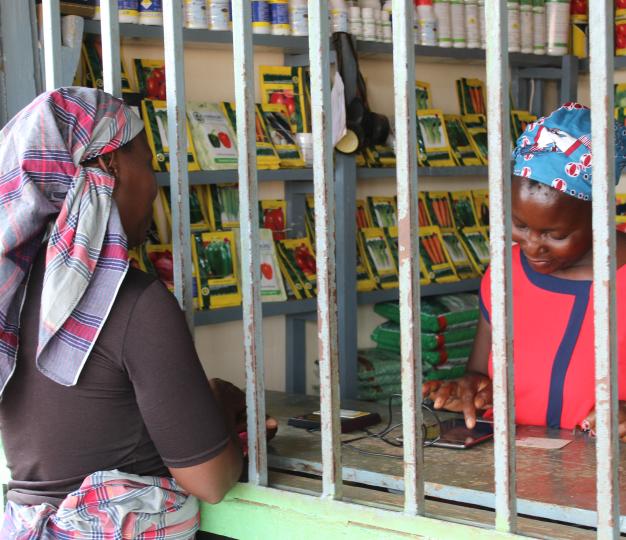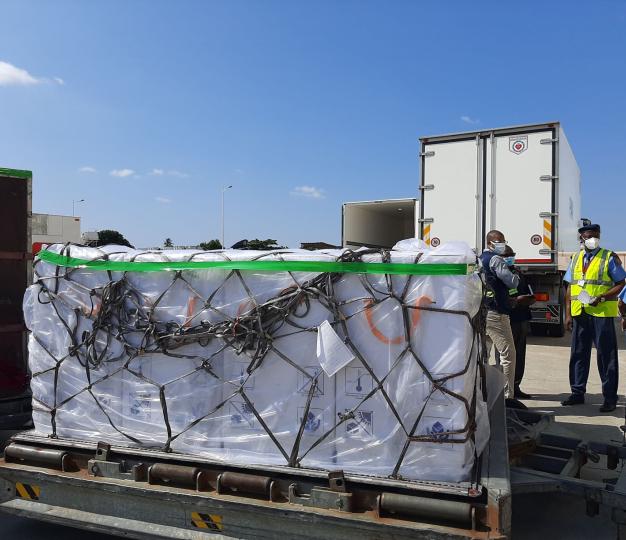RELATIONS WITH THE EU
The European Union and Mozambique
The close relationship between the European Union and Mozambique encompasses partnerships at the bilateral, regional and global levels. In its co-operation with Mozambique, the EU has been an active supporter of peace and security, as well as a leading actor in trade, investment, development cooperation and humanitarian aid.
Political Relations
EU-Mozambique relations cover political, trade, economic and cooperation sectors. The new EU-ACP Agreement (post-Cotonou) enters into force in 2021. The 11 EU Member States represented in Mozambique are Austria, Belgium, Finland, France, Germany, Ireland, Italy, Netherlands, Portugal, Spain, and Sweden.
Elections and political situation
Mozambique has been an example of reconstruction since the 1992 Rome Peace Agreement that ended a 16-year civil war. The EU has been supporting dialogue for peace between the Government and the main opposition party, Renamo, and that has resulted in the signing of the Peace Agreement in August 2019.
The main EU priorities of EU action are:
- Strengthening democracy.
- Regular Political Dialogue.
- Peace and Security.
Currently, the EU is supporting the implementation of the 2019 Peace Agreement, with a contribution of €60 million.
Economic Relation and Trade
Economic situation
Mozambique has a young and rural-based population. Since the early 1990s, the country has experienced a high economic growth rate linked to economic reform and the revival of the agriculture, transportation, and tourism sectors. However, the country is highly exposed to climate hazards and needs to adapt to climate change. On the other hand, important natural resources are expected to stimulate development if the current localized security and stability challenges are overcome.
Wider EU – Mozambique links also cover topics placed as high priorities of EU Strategy for Africa, namely, trade facilitation, green transition, digital transformation, sustainable growth and jobs.
Trade
The EU has been since early 2000 promoting a new type of regional, multilateral trade arrangement, known as Economic Partnership Agreements (EPAs), aiming to reduce poverty, diversify economies and create employment through enhanced intra-regional integration and a carefully managed opening towards the world economy.
The EU and the Southern Africa Development Community (SADC) have signed an EPA, which Mozambique has been implementing since February 2018. Under this framework, the EU provides trade advantages to Mozambique and grants tariff-free, quota-free access for all its goods, except arms and ammunition.
Technical and Financial Assistance
Two main focal sectors are of utmost reference: the Good Governance & Development and Rural Development.
Projects under Good Governance and Development aim to secure overall support to national public policy and priorities, with emphasis on strengthening government systems, accountability and macroeconomic management.
The Rural Development focal sector supports inclusive growth and poverty reduction in rural areas. To those goals, the EU adopted an integrated approach named PROMOVE, under implementation in Zambezia and Nampula, through six projects:
PROMOVE Transport - € 124 Million
Rehabilitation of rural roads in the provinces of Zambezia and Nampula. An example of such action is the EU-funded Milange – Mocuba 190km road, inaugurated in 2019.
PROMOVE Energy - € 94 Million
Access to rural energy services. Mozambique's current energy access rate is amongst the lowest in the region. Actions under PROMOVE Energia are also a contribution towards the 2030 Agenda goal of securing universal access to affordable energy services.
PROMOVE Agribiz - € 68 Million
Promotion of rural competitiveness through actions in three areas:
- Increasing sustainable agriculture to enhance food and nutrition security.
- Developing rural markets and value chain competitiveness to foster economic diversification.
- Promoting community development for resilience.
PROMOVE Nutrition - € 30 Million
Addressing the high levels of stunting in Mozambique. Chronic malnutrition is at critical levels and stunting remains a key public health concern, primarily affecting infants, young children and women of reproductive age. The project is also strengthening local capacity in nutrition-related planning and policy implementation.
PROMOVE Biodiversity - € 13 Million
Protecting biodiversity and contributing to improve the livelihoods of rural communities through sustainable management of natural resources. The program covers the biodiversity-rich areas known as Ilhas Primeiras e Segundas, the Gilé National Reserve and the Mabu Inselberg.
PROMOVE Trade - € 12 million
This is the only PROMOVE component with a national focus - it supports the implementation of trade facilitation measures and the improvement to the business environment by strengthening the government's reforms capacity within the framework of the World Trade Organization and the EU-SADC EPA.
EU and PALOP-TL Cooperation
The group PALOP-TL is formed by five Portuguese-speaking African countries, namely Angola, Cape Verde, Guinea-Bissau, Mozambique and São Tomé & Príncipe, and Timor-Leste. EU cooperation with PALOP-TL promotes a "Governance Initiative" that looks to reinforce democratic, social and economic governance.
Civil Society and Human Rights
Civic participation and human rights for all
EU action in the civil society sector aims at improving CSOs’ and public institutions’ dialogue, reinforcing their role in promoting checks and balances and an enabling environment for participation at the local level. There are three priorities:
- Supporting the application of the national laws and reinforcement of space for dialogue with citizens representation.
- Reinforcing informal mechanisms for investment in civil society’s work at a local level.
- Building capacity of CSOs and promoting new opportunities for development.
One important instrument under implementation is the Non-State Actors Support Programme (PAANE), which supports non-state actors to have a voice in governance processes.
Human Rights
The situation in Mozambique in terms of human rights and democracy remains challenging, with an overall deterioration of political and civil rights. The insurgency in the Cabo Delgado province has resulted in constant reports of violations of human rights, including illegal detentions of journalists and human rights defenders.
The EU continues to work on key areas, with a special emphasis on the fight against corruption and the promotion of fundamental rights and freedoms. You can read the latest EU Annual Report on Human Rights And Democracy in the World (2020).
The EU has also been working on gender-related discrimination and violence. The Spotlight Initiative, the new EUR 500 million global initiative between the EU and the United Nations, launched in 2017, aims at eliminating all forms of violence against women and girls. The programme is under implementation in three Mozambican provinces: Gaza, Manica and Nampula.
Development Cooperation and Humanitarian Aid
Working in partnership for development cooperation
Cooperation is a fundamental pillar of EU-Mozambique relations. Aligned with Mozambique's priorities, EU cooperation covers:
- Democracy and the rule of law: to promote the deepening of a gender-sensitive democratic system, transparency, and the strengthening of the Mozambican State in its core governance functions.
- Sustainable and inclusive economic development: to support efforts to stabilise the economy, create jobs, foster rural competitiveness, and better engage the private sector, while ensuring environmental preservation.
- Investment: to encourage EU - Mozambique investment links by identifying opportunities and engaging in economic diplomacy.
Humanitarian Aid
The EU and its Member States are at the forefront of the response to major crises around the world. EU humanitarian aid is secured through the European Civil Protection and Humanitarian Aid Operations (ECHO), which assists the victims of conflicts or natural disasters. The COVID-19 pandemic and violence in Cabo Delgado had a significant humanitarian impact in a country that is yet to recover from the 2019 cyclones.
Support to post-cyclone reconstruction
As part of the wider post-cyclone reconstruction in Mozambique, the EU has pledged EUR 200 million, €100 million of which were a concessional loan by the European Investment Bank.
COVID Response
COVID-19: EU support
The COVID-19 outbreak and the corresponding restrictions on public and economic activities have had a detrimental socio-economic impact. As a result, Mozambique’s GDP is estimated to have shrunk by -1.3% in 2020.
At the end of 2020, the EU approved a State and Resilience Building Contract (SRBC) worth €100 million as a short-term/one-off budget support response, given the special circumstances triggered by the pandemic and the restrictions in place. The SRBC is at the forefront of the EU response and will address the pandemic’s adverse effects on health, education, and social protection. €50 million were disbursed.
The Government of Mozambique initially estimated that the economic impact of the COVID-19 outbreak would be around USD 700 million in 2020 and requested external support. In June 2020, the EU and its Member States (under a ‘Team Europe’ approach) mobilised about €195 million to mitigate the socio-economic effects of the pandemic in the health, education, and development sectors, as well as to fight disinformation and fake news about COVID-19 in the country.
The EU is one of the leading donors to the COVAX initiative (EUR 2,5 billion) to ensure fair access to safe and effective vaccines. The EU has also extensively supported Mozambique’s vaccination plans through COVAX - the first batch of vaccines (384,000 doses) was delivered in March 2021. In the long term, the COVAX Facility will deliver over 12 million vaccines and cover 20% of the country's population.






